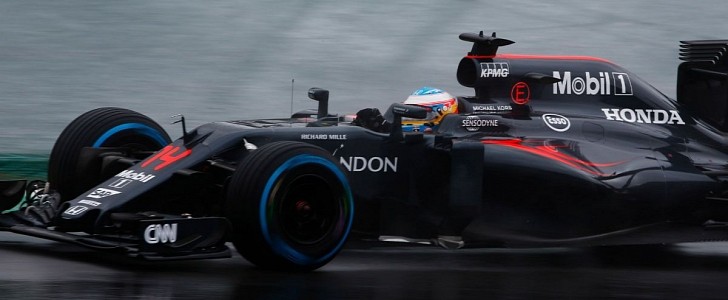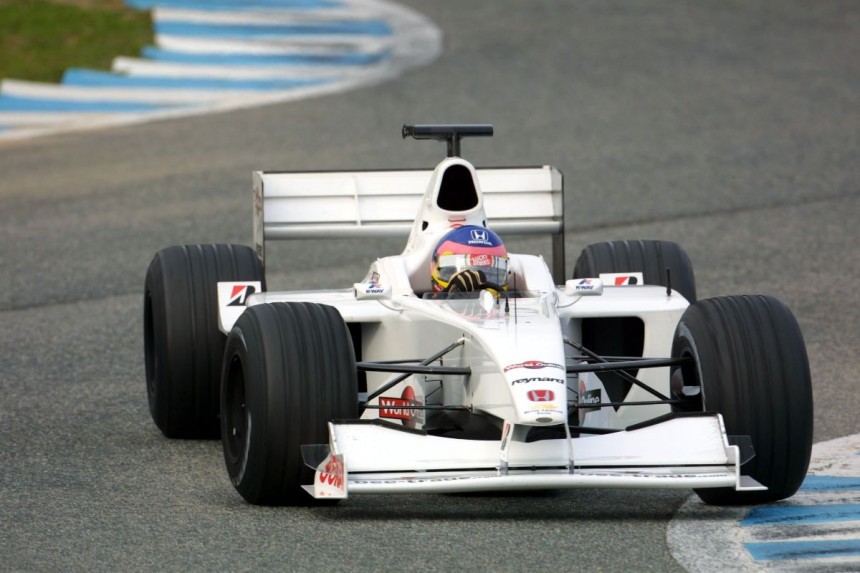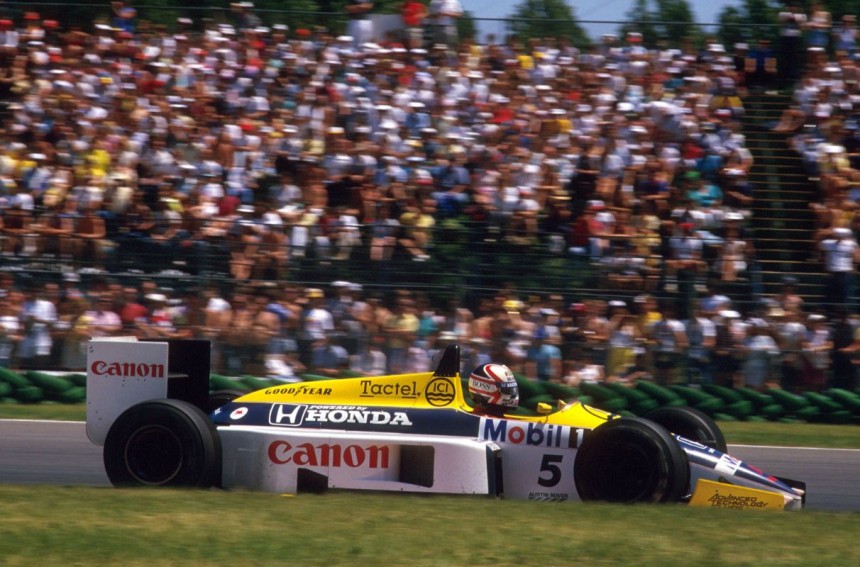Honda is one of the most important automakers in the long history of Formula One and is a car manufacturer that had a huge impact and influence over the evolution of this competition.
Because rumors appeared that Honda wanted to re-enter the scene of the Grand Prix world after they left at the end of 2021, we noticed that the Japanese brand had a significant impact on F1 on more than one occasion.
Let's start with something that not a lot of people may know. At the start of a new millennium, Honda wanted to create a team from scratch for the 2000 season, but the cost of the project caused a split at board level. As a result, they returned as a works engine capacity with the BAR (British American Racing) team. Eventually, Honda took over BAR in 2006, becoming Lucky Strike Honda Racing F1 Team.
This led to some critical events in the following years, with the impact being seen even today, but we will talk about that later. Now, let's see how Honda's decision to take over another team instead of creating one from scratch influenced Toyota. I know it sounds weird but be patient. Honda'a action opened up the final place on the grid, meaning that Toyota didn't have to buy one of F1's independent teams to make its debut in 2002. And we all know that Toyota was a big part of F1 until 2009.
As we promised earlier, let's discuss why Honda leaving F1 in 2008 had such a significant impact that it's felt even today. After two dreadful years as a full team, the Japanese automaker decided to leave F1 at the end of the 2008 season in response to the global financial crisis. As a result, the car it had spent hundreds of millions developing for the new rules in 2009 was set to go unraced.
However, the rescue was underway for the 2009 season. Ross Brawn and Nick Fry bought the assets of the Japanese brand and rebranded it to Brawn GP. With some financial help from Honda and, crucially, a Mercedes engine deal, Brawn dominated the start of the season with Jenson Button and Rubens Barrichello.
By the end of the year, Jenson Button and Brawn had won both championships, creating one of the best stories in F1 history. But that's not all. At the end of 2009, Mercedes saw an opportunity and bought the team, winning eight consecutive championships and becoming one of the most dominant teams in F1 history. So basically, the Mercedes dominance would probably never happened if it wasn't for Honda. How cool is that?
Now, let's go a little bit back in time to the end of the 1980s. Williams dominated the 1987 F1 season, winning nine races and taking home both championships. However, the following year they were nowhere because Honda took its engines to McLaren, where two guys named Ayrton Senna and Alain Prost were waiting. But why the disconnection between Williams and Honda? In 1986, Williams had Nelson Piquet (a two-time world champion at that time) and Nigel Mansell (one of the best F1 drivers in that period).
As a result, Frank Williams let them battle each other for the championship, but while they were fighting, Alain Prost snuck in with his McLaren to take the 1986 title. Honda bosses were mad because they felt that Piquet should have been given number one treatment, even considering replacing Mansell with Nakajima. However, the story goes deeper and deeper. Honda followed Senna to McLaren after he left Lotus, but at the same time, Nelson, who had a close connection with Honda, left Williams for guess who, Lotus!
Williams didn't have an engine partner, so Frank Williams knew he had to do something. As a result, he called Renault. The French manufacturer had left F1 in 1986 but had been hard at work on a V10 engine for the new rules coming in 1989. Knowing how much Williams-Renault dominated F1 in the 90s, it's incredible to think everything started from Honda being frustrated with the British team.
These are some of the most significant Honda decisions that irreversibly impacted F1. Suppose things happened another way; who knows how different the Grand Prix world would have been today. Maybe Eddie Irvine would have been a nine-time world champion, or Schumacher would have won everything with Renault.
Let's start with something that not a lot of people may know. At the start of a new millennium, Honda wanted to create a team from scratch for the 2000 season, but the cost of the project caused a split at board level. As a result, they returned as a works engine capacity with the BAR (British American Racing) team. Eventually, Honda took over BAR in 2006, becoming Lucky Strike Honda Racing F1 Team.
This led to some critical events in the following years, with the impact being seen even today, but we will talk about that later. Now, let's see how Honda's decision to take over another team instead of creating one from scratch influenced Toyota. I know it sounds weird but be patient. Honda'a action opened up the final place on the grid, meaning that Toyota didn't have to buy one of F1's independent teams to make its debut in 2002. And we all know that Toyota was a big part of F1 until 2009.
As we promised earlier, let's discuss why Honda leaving F1 in 2008 had such a significant impact that it's felt even today. After two dreadful years as a full team, the Japanese automaker decided to leave F1 at the end of the 2008 season in response to the global financial crisis. As a result, the car it had spent hundreds of millions developing for the new rules in 2009 was set to go unraced.
By the end of the year, Jenson Button and Brawn had won both championships, creating one of the best stories in F1 history. But that's not all. At the end of 2009, Mercedes saw an opportunity and bought the team, winning eight consecutive championships and becoming one of the most dominant teams in F1 history. So basically, the Mercedes dominance would probably never happened if it wasn't for Honda. How cool is that?
Now, let's go a little bit back in time to the end of the 1980s. Williams dominated the 1987 F1 season, winning nine races and taking home both championships. However, the following year they were nowhere because Honda took its engines to McLaren, where two guys named Ayrton Senna and Alain Prost were waiting. But why the disconnection between Williams and Honda? In 1986, Williams had Nelson Piquet (a two-time world champion at that time) and Nigel Mansell (one of the best F1 drivers in that period).
Williams didn't have an engine partner, so Frank Williams knew he had to do something. As a result, he called Renault. The French manufacturer had left F1 in 1986 but had been hard at work on a V10 engine for the new rules coming in 1989. Knowing how much Williams-Renault dominated F1 in the 90s, it's incredible to think everything started from Honda being frustrated with the British team.
These are some of the most significant Honda decisions that irreversibly impacted F1. Suppose things happened another way; who knows how different the Grand Prix world would have been today. Maybe Eddie Irvine would have been a nine-time world champion, or Schumacher would have won everything with Renault.














